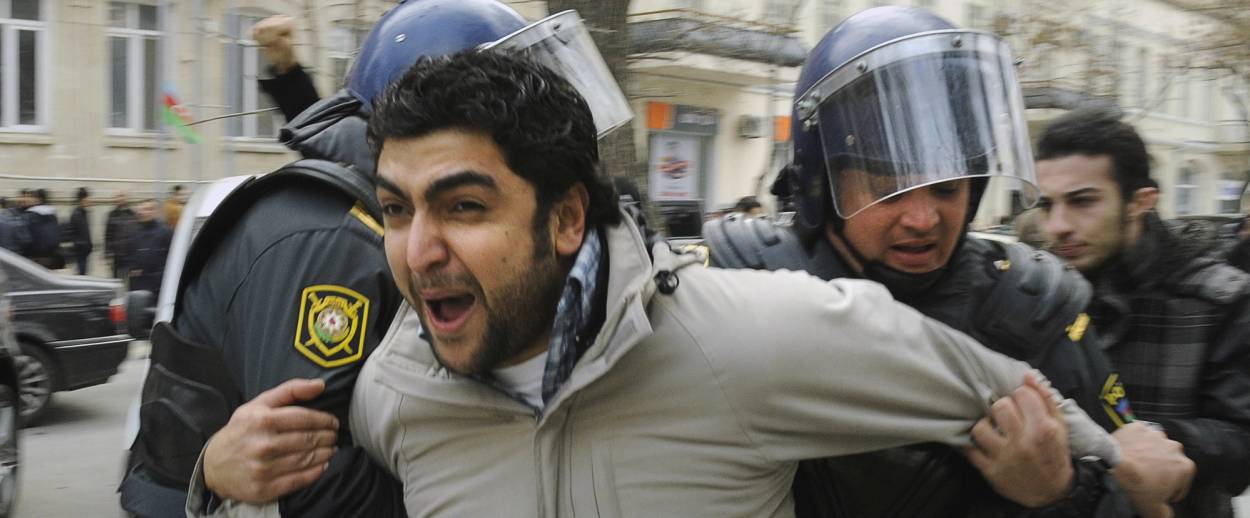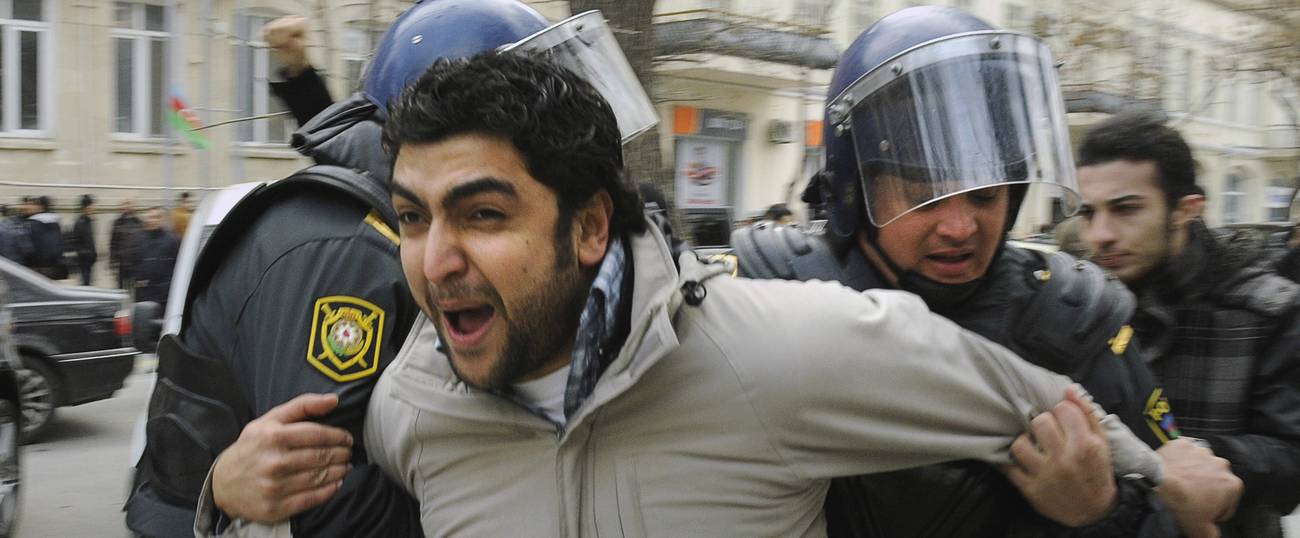The Azerbaijan Conundrum
Sure, Azerbaijan is tolerant of its Jews. But that’s no reason to excuse the despotic, human rights-violating regime in charge.




Three writers go to Azerbaijan, meet with government officials, and all come back with a glowing impression of the place. Three makes a trend—an unfortunate one at that—despite the fact that, by all accounts, the Jewish community of Azerbaijan is safe and secure, and exists relatively free of anti-Semitism.
Writing in the Forward, Justin Amler called Azerbaijan and its Jew-loving Muslims “a beacon of light and hope that the rest of the Islamic world can only hope to emulate.” In Time, Rabbi David Wolpe, having returned from a five-day tour during which he could walk “straight into a synagogue, claimed the country to be an “oasis of tolerance” and a “promising example” for the region. And writing for The Jerusalem Post, Yael Lerman Mazar of StandWithUs, who was on the same trip as Rabbi Wolpe, waxed poetic about “democratic” Azerbaijan, a “proud country” with a “generous government.” The number of Jews in Azerbaijan falls somewhere around 9,000.
These op-eds are nothing if not credulous. Frankly, and especially in the case of Mazar who seems to have left her critical faculties at the airport, they’re embarrassing. Nothing should justify journalists conducting public relations for one of the most authoritarian governments in Europe. If Azerbaijan is an example of anything, it’s how to pull the wool over impressionable visitors’ eyes.
Azerbaijan has been in the grip of the corrupt Aliyev crime family for more than two decades. The last election in November, the “worst in recent history,” saw no debate or mass demonstrations, and an opposition boycott. Persecution of dissidents has recently escalated; dozens of human rights defenders, political and civil activists, journalists, and bloggers have been arrested or imprisoned. One year ago, the investigative journalist Khadija Ismayilova was hauled in on trumped up charges of libel, tax evasion, and illegal business activity, and sentenced in a closed trial this September to 7.5 years in prison. Detained opposition activists have reportedly been tortured. Kemale Benenyarli of the Azerbaijani Popular Front Party complained of maltreatment after she was arrested earlier this year and refused to sign a ‘confession’ written by the police. “She was punched, dragged and locked in a cell, where she was kept without food or water until her trial the following morning,” according to Amnesty International.
For the political opposition, Azerbaijan is not an oasis of tolerance, nor is it for the LGBT community who are “almost invisible in a highly repressive society.” Isa Sahmarli, a 20-year-old LGBT activist who committed suicide in January, left behind a note linking his self-slaughter to pervasive homophobia. The Armenian population were victims of pogroms in Sumgait and Kirovapat in 1988 and Baku in 1990: scores killed and injured, homes set on fire and looted. Mazar writes “there has never been a pogrom in Azerbaijan.” Try again.
The instinct at work here among Jewish leaders and pro-Israel advocates is, I fear, to give Azerbaijan a pass for the simple reason that the state is good to its Jews, strong on anti-Semitism, and friendly towards Israel. It’s a rare combination, I’ll concede, but that instinct is lazy and sloppy, anti-intellectual and debasing, and ultimately dangerous. It makes one hostage to myopia and leads to tawdry apologias for dictatorial regimes.
Related: Mountain Jews
Liam Hoare is a freelance writer based in Vienna, where he is the Europe Editor for Moment and a frequent contributor to Tablet.